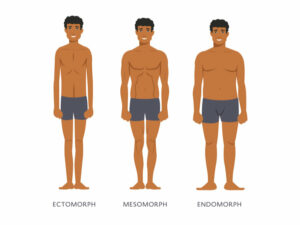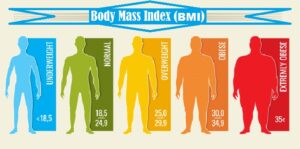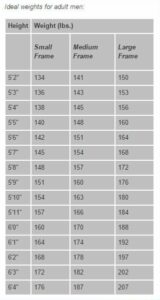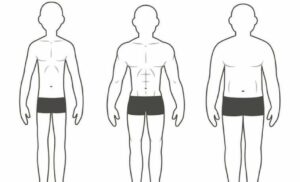There are so many conflicting opinions on how much a man should weigh. Some people say that you should be aiming for a weight that is lower than the average, while others believe that you should strive to be at the average weight or even heavier. So what is the right answer? And how do you determine your ideal weight? In this blog post, we will take a look at the average weight for men and provide some tips on how to find out what your ideal weight is.
Contents
What Is An Average Weight?
 Average weight is defined as the mean weight of a group of people. In order to find out the average weight for men, we need to look at a large group of men and take the mean of their weights. However, it is important to note that there will always be some variation in the weights of individuals within a group. This means that there is no such thing as an “ideal” weight, but rather a range of weights that are considered to be healthy.
Average weight is defined as the mean weight of a group of people. In order to find out the average weight for men, we need to look at a large group of men and take the mean of their weights. However, it is important to note that there will always be some variation in the weights of individuals within a group. This means that there is no such thing as an “ideal” weight, but rather a range of weights that are considered to be healthy.
Hence, it is important to focus on your own health rather than comparing yourself to others. The comparison must be done in order to get a starting point, which is the average weight. After that, you can start to think about what range would be healthy for you specifically.
How Much Should You Weigh?
 There are a few different ways to figure out how much you should weigh. One method is to use your Body Mass Index (BMI). BMI is a measure of body fat based on height and weight. You can calculate your BMI using this BMI calculator or simply by using the following formula:
There are a few different ways to figure out how much you should weigh. One method is to use your Body Mass Index (BMI). BMI is a measure of body fat based on height and weight. You can calculate your BMI using this BMI calculator or simply by using the following formula:
BMI = weight (in kg) / height (in m)^²
For example, a man who weighs 80 kg and is 180 cm tall has a BMI of 24.69.
The range of BMI values for adults is as follows:
Underweight: BMI less than 18.
Normal weight: BMI between 18. and 25.
Overweight: BMI between 25 and 30.
Obese: BMI over 30.
Another way to determine how much you should weigh is to think about your build. Are you a large-boned person or are you small-boned? Do you have more muscle mass or less? All of these factors will affect your average weight. There are various factors that can affect your average weight, such as your height, body type, and muscle mass. In general, taller men should weigh more than shorter men. Men who are more muscular should also weigh more than those who have less muscle mass.
 You can also use a weight chart to help you figure out how much you should weigh. This tool is based on your height and frame size. To use it, find your height on the left side of the chart. Then, move over to the right until you find your frame size. The number at the top of that column is your ideal weight.
You can also use a weight chart to help you figure out how much you should weigh. This tool is based on your height and frame size. To use it, find your height on the left side of the chart. Then, move over to the right until you find your frame size. The number at the top of that column is your ideal weight.
However, it is important to remember that these are just general guidelines. The best way to determine your ideal weight is to speak with your doctor or a registered dietitian. They can help you take into account your unique circumstances and health goals.
How To Compare Your Weight With The Average Weight?
As we mentioned before, there is no such thing as an ideal weight. However, the average weight can give you a starting point to think about what range would fall on the healthier side. If your weight is significantly lower or higher than the average weight, it may be worth talking to your doctor about whether or not you are healthy.
An American study that was conducted in 2016 found the average weight for men to be 196 pounds. This means that if you are a man and your weight is below 196 pounds, you may be considered underweight. If your weight is above 196 pounds, you may be considered overweight.
How To Determine Your Ideal Weight?
Ideal weight is the weight that suits your height and age the best. It is the weight that makes you feel comfortable and confident. The best way to find out your ideal weight is to speak with a doctor or registered dietitian. They will help you take into account your unique circumstances and health goals.
Keep in mind that there is no such thing as an “ideal” weight for everyone. We all have different bodies and different health goals. What matters most is that you are at a weight that is healthy for you and makes you feel good. Taking steps to eat a healthy diet and get regular exercise can help you reach and maintain a healthy weight.
What are some other factors that can affect your average weight?
There are various factors that can affect your average weight. Some other factors that can affect your average weight include:
Height
Height is one of the main factors that can affect your average weight. In general, taller men should weigh more than shorter men. Also, men of different heights will have different ideal weights.
Body type
 Body type is defined by the amount of muscle, fat, and bone in your body. People who are more muscular should weigh more than those who have less muscle mass. It is important to remember that muscle weighs more than fat. So, even if two people have the same BMI, the person with more muscle will weigh more.
Body type is defined by the amount of muscle, fat, and bone in your body. People who are more muscular should weigh more than those who have less muscle mass. It is important to remember that muscle weighs more than fat. So, even if two people have the same BMI, the person with more muscle will weigh more.
Age
As you age, your weight may change. This is because muscle mass usually decreases with age. Younger adults tend to have more muscle mass than older adults. Hence, they may weigh more.
Health conditions
Certain health conditions can also affect your weight. For example, men with hypothyroidism may have a lower average weight than men without the condition. In contrast, men with conditions that cause inflammation, such as arthritis, may have a higher average weight.
Gender
Gender is another factor that can affect your average weight. In general, men weigh more than women. This is because men have more muscle mass and less body fat than women and, on average, are taller than women.
Genetics
Genetics means that some men may be predisposed to being overweight or obese. This is because they have genes that make them more likely to store fat in their bodies. If you have a family history of obesity, you may be more likely to be overweight.
Hormonal changes
Hormonal changes can also affect your weight. For example, men who have low testosterone levels may have a lower average weight than men with normal testosterone levels.
These are just a few of the many factors that can affect your weight. Try to keep all of these factors in mind when considering your average weight.
Some Tips To Achieve Average Weight For Men
There are a few things you can do to help maintain a healthy weight and achieve the average weight for men. These tips will help you stay on track and make healthy choices:
Tips For Underweight Men
If you are underweight, you may need to gain weight. Here are a few tips that can help:
Eat three meals a day
Eating three meals a day can help you get the calories and nutrients you need. Make sure to include lean proteins, healthy fats, and complex carbohydrates in your diet. Foods like chicken, fish, eggs, and tofu are good sources of protein. Good sources of healthy fats include avocados, nuts, and olive oil. Complex carbohydrates include whole grains, fruits, and vegetables.
Increase your calorie intake
 If you are underweight, you may need to increase your calorie intake. This can be done by eating more food, or by choosing foods that are more calorie-dense. Foods like nuts, seeds, dried fruit, and yogurt are good options. You can also drink smoothies or shakes made with milk, peanut butter, and banana.
If you are underweight, you may need to increase your calorie intake. This can be done by eating more food, or by choosing foods that are more calorie-dense. Foods like nuts, seeds, dried fruit, and yogurt are good options. You can also drink smoothies or shakes made with milk, peanut butter, and banana.
Exercise
Exercise can help you gain weight by building muscle mass. Try to do strength-training exercises three times a week. This can include lifting weights, doing bodyweight exercises, or using resistance bands. You can start with lighter weights and gradually increase the amount of weight you lift over time.
Snack often
Eating small snacks throughout the day can help you increase your calorie intake. Try to eat healthy snacks like fruits, vegetables, or whole-grain crackers. You can also drink fruit juice or eat yogurt between meals. Weight-gain supplements can also be helpful.
Talk to a doctor or dietitian
If you are having trouble gaining weight, you may want to talk to a doctor or dietitian. They can help you create a healthy eating plan and provide guidance on safe and healthy weight gain.
Tips For Overweight Men
If you are overweight, you may need to lose weight. Here are a few tips that can help:
Cut back on calories
Eating fewer calories can help you lose weight. You can do this by eating smaller portions, or by choosing lower-calorie foods. Foods like fruits, vegetables, and whole grains are good options. You should also avoid sugary drinks, processed foods, and excessive amounts of saturated and unhealthy fats.
Increase your activity level
Exercising more can help you burn calories and lose weight. Try to do at least 30 minutes of moderate-intensity exercise most days of the week. This can include walking, jogging, biking, or swimming. You can also do HIIT (High-Intensity Interval Training) workouts to boost your calorie burning.
Eat more protein
Eating more protein can help you lose weight and keep your muscles strong. Good sources of protein include chicken, fish, tofu, legumes, and eggs. You should also try to eat protein at every meal. It will help you feel fuller longer and prevent you from overeating.
Reduce your stress levels
 Stress can cause weight gain by triggering the body to store fat. To reduce stress, try yoga, meditation, or deep breathing exercises. You should also avoid smoking and excessive alcohol consumption. You can also talk to a therapist or counselor if you are having trouble managing your stress.
Stress can cause weight gain by triggering the body to store fat. To reduce stress, try yoga, meditation, or deep breathing exercises. You should also avoid smoking and excessive alcohol consumption. You can also talk to a therapist or counselor if you are having trouble managing your stress.
Talk to a doctor or dietitian
Talking to a doctor or dietitian can help you create a weight-loss plan that is safe and effective. They can also provide guidance on making healthy lifestyle changes. It is important to see your doctor before starting any weight-loss plan, especially if you have a medical condition.
Tips For Men of Average Weight
If you are of average weight, you may need to maintain your weight. Here are a few tips that can help:
Eat a balanced diet
A balanced diet is important for maintaining your weight. Foods like fruits, vegetables, whole grains, and lean protein should make up the majority of your diet. You should also limit your intake of sugary drinks, processed foods, and saturated fats.
Be physically active
Exercising regularly can help you maintain your weight. Try to do at least 30 minutes of moderate-intensity exercise most days of the week. This can include walking, jogging, biking, or swimming.
Manage stress levels
Stress can cause weight gain by triggering the body to store fat. To reduce stress, try yoga, meditation, or deep breathing exercises. You should also avoid smoking and excessive alcohol consumption. You can also talk to a therapist or counselor if you are having trouble managing your stress.
Talk to a doctor or dietitian
 If you are struggling to maintain your weight, you may want to talk to a doctor or dietitian. They can help you create a healthy eating plan and provide guidance on making healthy lifestyle changes. It is important to see your doctor before making any major changes to your diet or exercise routine.
If you are struggling to maintain your weight, you may want to talk to a doctor or dietitian. They can help you create a healthy eating plan and provide guidance on making healthy lifestyle changes. It is important to see your doctor before making any major changes to your diet or exercise routine.
Monitor your weight
It is important to monitor your weight so that you can make changes if necessary. You should weigh yourself at least once a week and track your progress over time. If you notice that you are gaining weight, you may need to make changes to your diet or exercise routine.
Conclusion
To conclude, the average weight for men is just a measure. There are a number of other factors, such as height and body composition, that affect how much a person should weigh. However, if you’re concerned about your weight, it’s important to talk to your doctor or healthcare provider. They can help you determine if you’re at a healthy weight or if you need to make changes. Being on either end of the spectrum (underweight or overweight) can lead to a number of health problems, so it’s important to be proactive about your weight. All you need to do is find your height on the chart and voila! You have your ideal weight. But, as we said before, this is just a general guide and not everyone will fit perfectly into this category.
For more tips on healthy eating and weight loss, contact Mantra Care. We can help you develop a healthy weight loss plan that is tailored to your specific needs and goals. As always, consult a registered dietitian or nutritionist if you have any questions or concerns about starting a new diet. We also offer you our online nutrition counseling to help you connect with our expert nutritionists from the comfort of your home.


